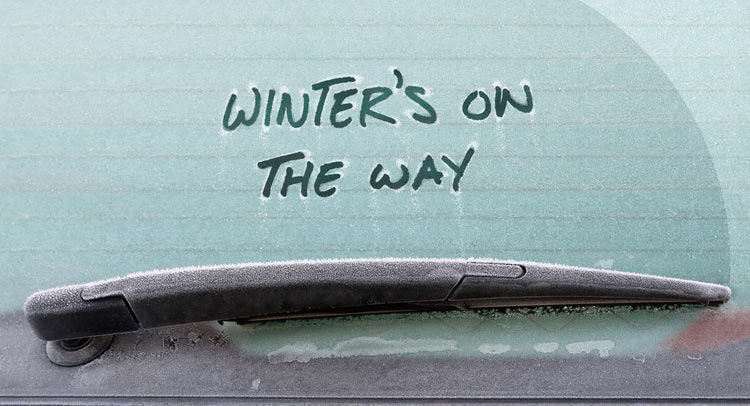No, this isn’t a teaser for the next season of Game of Thrones, but just a friendly warning from Volkswagen Commercial Vehicles, letting us know what we need to do in order to drive safe during the winter.
The UK is expected to face the worst winter in 50 years as storm Abigail makes her way across the Atlantic, which is part of the reason why VW Commercial Vehicles is offering a complimentary tire check until February 28th 2016, ensuring that the tire tread and pressure on your V-Dub are in the green.
According to a TyreSafe research, one in five drivers have never checked their tires, putting the number of dangerous and illegal tires likely to be driven on UK roads this year at a staggering 10 million.
This is of course an awareness issue, because not all people realize that it’s not just extreme winter conditions like snow or mud that can affect your tire performance, but also cold or damp road surfaces. In fact, the traction offered by your tires can decrease dramatically even if with the road looking dry as a bone, as long as the temperature is low enough.
No worries however, because as long as you follow these guidelines, you’re chances of losing traction this winter and getting into trouble, will decrease dramatically.
#1 Check the tread
During winter, the recommended tread depth is 3 mm (0.11 inches) as opposed to the standard 1.6 mm (0.06 inches) – this is very important when considering stopping distance. What you need to do is place a 20p coin into the tread of your tire and if the coin’s outer band isn’t visible, it means that you are above the legal limit.
#2 Don’t be deflated
If you often travel long distances every single month, than you should definitely check your tire pressure on a monthly basis. Cold weather can cause tire pressure to drop and that will in turn affect the handling characteristics of your car.
#3 Always switch to winter tires
Winter tires are designed to work best when temperatures drop below 7°C – which can even happen during Spring or Autumn, depending on where you live. Generally, they deliver up to three times the grip of standard tires, helping reduce accidents and skidding in just about every type of condition, not just on snow. If you think your summer tires can handle it, think again.
#4 Don’t overload your van
If you often carry heavy payloads aboard your commercial vehicle without inflating the tires to a higher level, it can result in excessive wear and tear and increased stopping distances. VW research has indicated that half of the UK’s three million van drivers are overloading their vans, which means that not only are they putting themselves at risk, but also other drivers. And yes, always check your vehicle’s handbook before you inflate your tires.
These guidelines apply not just to commercial vehicles, but to every type of vehicle on the road. You don’t need to drive a van in order to be smart about your tire choice, which is a must considering the fact that winter is indeed…coming.




